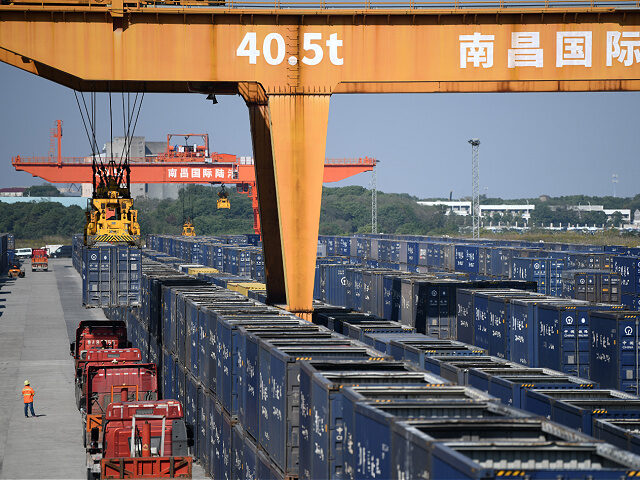Markets in China tumbled on Friday, dismayed by a disappointing stimulus package from Beijing and fear that President-elect Donald Trump will restore high tariffs on Chinese exports.
Factories in China are reportedly surging production to pump goods into the supply chain before Trump takes office.
Chinese investors were expecting a major stimulus commitment from the government after Trump won the U.S. election on Tuesday, but all they got on Friday was a relatively weak $1.4 trillion five-year plan that was mostly focused on reducing the huge debt load of China’s local governments.
“This is not the stimulus that markets were looking for at all. This is not stimulus to begin with. What they’re doing is recycling debt. I don’t think this does anything to stimulate growth,” managing director Shehzad Qazi of the U.S.-based China Beige Book told CNBC.
He Yongqian, spokeswoman for the Chinese Ministry of Commerce (Mofcom), extended an olive branch to the incoming Trump administration on Thursday.
“China is willing to strengthen communication, expand cooperation and resolve conflicts with the United States in accordance with the principles of mutual respect, peaceful coexistence, and win-win cooperation,” she said.
He said Beijing wants to “jointly promote the development of China-US economic and trade relations in a stable, healthy and sustainable direction that would benefit both countries, and the world.”
At the same time it made friendly overtures to head off another trade war with Trump, Mofcom was preparing to meet with European Union (EU) officials for “intensive” negotiations over EU tariffs on Chinese electric vehicles (EVs).
Voice of America News (VOA) reported Thursday that outbound shipments from China “grew at the fastest pace in over two years in October as factories rushed inventory to major export markets in anticipation of further tariffs from the U.S. and the European Union.”
“Trump’s tariff threat is rattling Chinese factory owners and officials, with some $500 billion worth of shipments annually on the line, while trade tensions with the EU, which last year took $466 billion worth of Chinese goods, have intensified,” VOA noted.
Economists spoke of China “front-loading” exports for the final quarter of 2024 to beat the anticipated sledgehammer blow of Trump tariffs, which could begin as soon as the third quarter of 2025.
Other major exporters like South Korea, Taiwan, and Germany have reported weak global demand, even as China surged production and cut prices. VOA cited a factory survey from October that suggested China is having trouble finding buyers for all the goods it is pumping out, even at cut-rate prices.

COMMENTS
Please let us know if you're having issues with commenting.